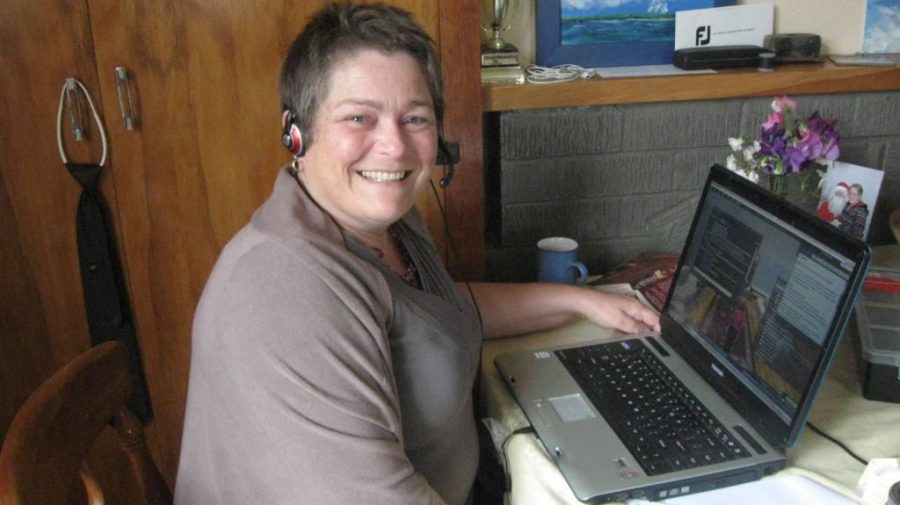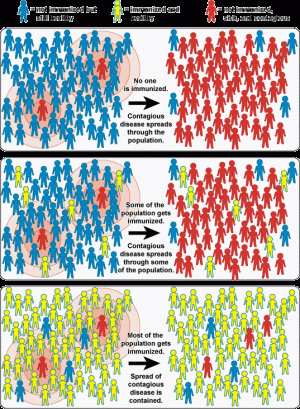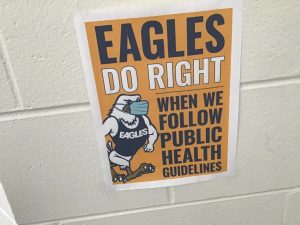Op-Ed: Why online classes should not be the new normal
For over a year now, there’s been talk of making online classes “the new normal” for some classes and degree programs because the university realized they could make all classes online during the shutdown in March, so why not do that full-time? I’m here to provide two main reasons: not all grading markers translate well in an online environment and not everyone learns well in an online environment.
Even discussion posts are not as effective in an online, asynchronous environment. When professors tell students to post on a discussion board and respond to two or three of their classmates, most students do the minimum amount of work in order to get the grade they need. In a face-to-face class setting, discussion happens organically, students participate as often as they have something to say and everyone has the opportunity to listen and respond to whatever anyone else says.
This form of discussion creates three groups of students. The first are the students who do the discussion at the first free moment they have and then they wait for the rest of the classmates to post before they can respond to anyone. Then, there are the students who wait until the last hour before the discussion post is due to write the discussion post and respond to classmates so they can respond to everyone but no one can respond to them.
Finally, they are the students who can participate in the discussion board the way that discussion board is meant to happen. They write their discussion post in time for some students to respond to them and they can respond to other students.
Other class activities that do not work well online are peer editing and learning math from online videos. In both cases, I personally need to have the opportunity to ask questions in real time and if students are watching the videos or editing the papers at different times and places, that is not possible. I don’t even want to think about how one completes clinicals or labs in an online learning environment.
However, even if we could find workarounds for these problems with online learning, we’d have to face the next issue, which is that not everyone learns well in an online environment. Some people need the structure of having class in a set time and place to keep themselves accountable and focused on completing all their work on time.
Some people need a lecture to accompany the reading or the slides to help them drive some of the more complex points home. I know for me, the more unfamiliar I am with a subject or the more complex the subject is, the less likely I am to take the class online. I’m sure I’m not the only one who thinks like this.
Classes that are considered complex and difficult will differ from student to student. I find writing easy, but I find lab sciences challenging. Meanwhile, I’m sure there are lab science majors who find writing difficult and lab sciences easy. So, who gets to decide which classes are easily “translated” into online classes, me or the chemistry major?
The answer then, should be that students still have an option to take classes synchronously, in the seat, and hybridly
if they think they need to in order to pass the class. Graduation rates, GPAs, and job prospects improve if students are able to learn the way they learn best.







J Remppel • Nov 30, 2021 at 10:30 am
In person learning is best. On line classes should be simply a response to the pandemic. Otherwise, will this lead to “canned school” .. where a textbook company produces a class and any university can buy it and all across the nation we get a “fast food” education.
The professor it important.